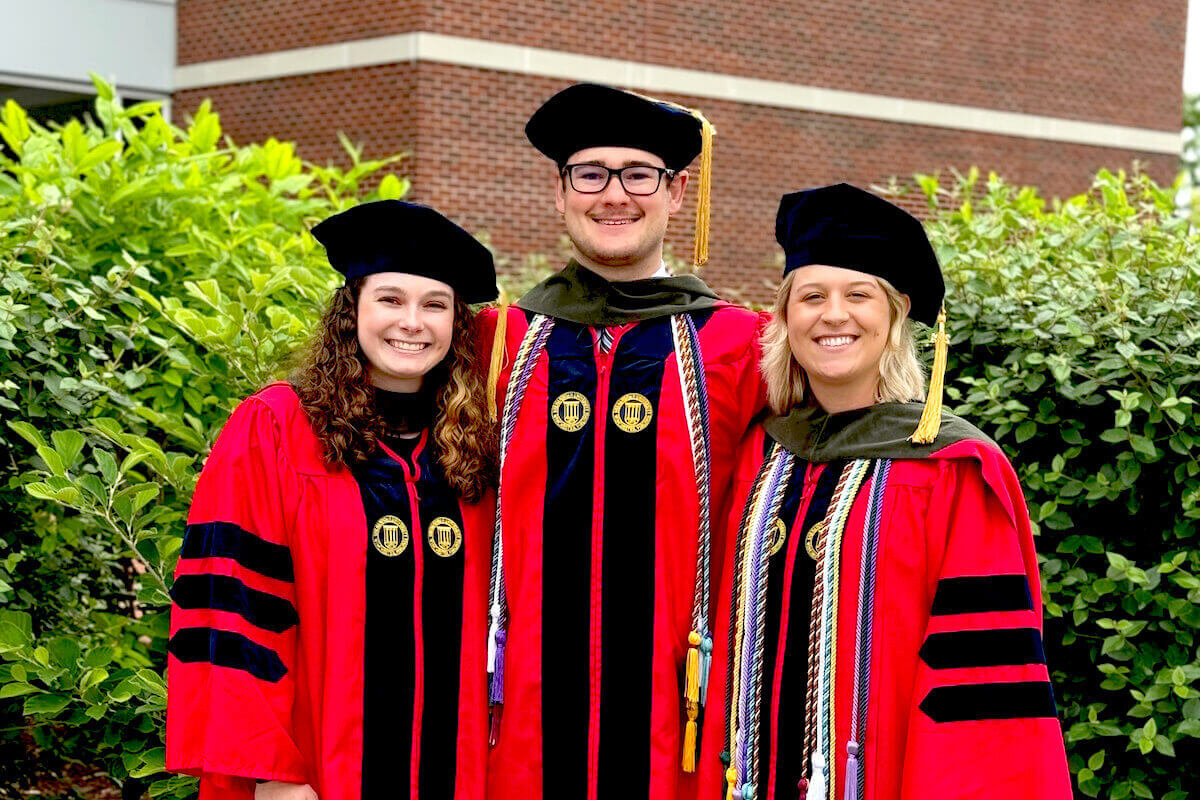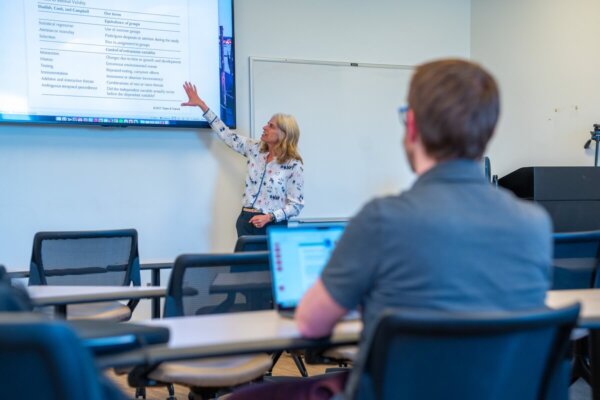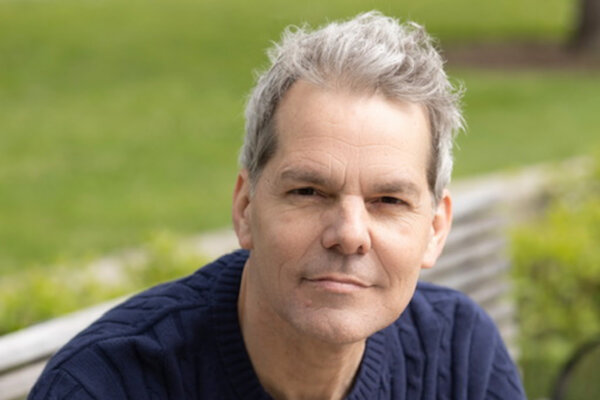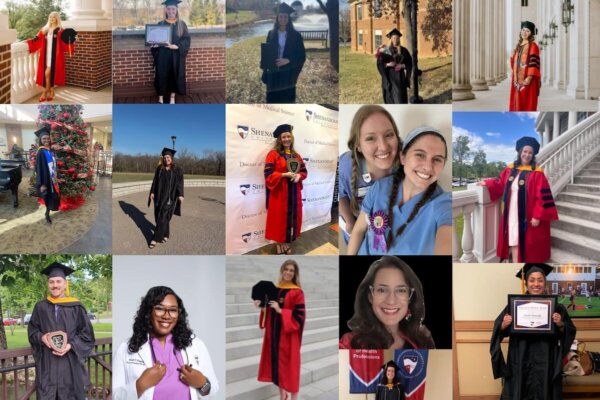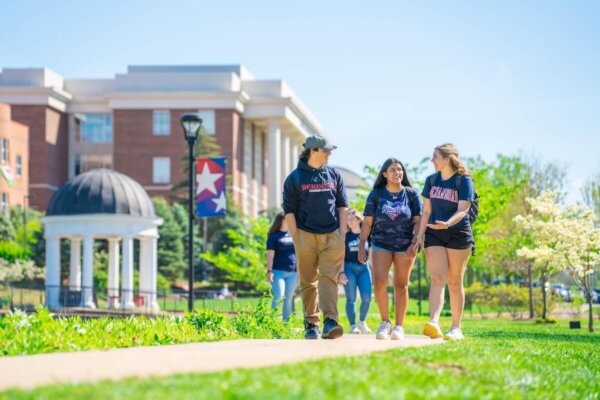Health Professions Faculty Work Recognized
Faculty members receive honors and press attention and present research

Associate Professor in the Division of Physician Assistant (PA) Studies & Director of Pre-Health and Interprofessional Education Anne Schempp, MPAS, PA-C, has been named chair of the Physician Assistant Education Association’s (PAEA) End of Curriculum Exam Development Board. As chair of this board, Schempp will help develop and oversee a new exam for graduating PA students, an undertaking that has been in the works for several years. The work of this board continues as part of the Assessment Council under PAEA, the national organization for PA education.
Assistant Professor of Physical Therapy Cameron Bolton ’14, D.P.T., and Assistant Professor of Physical Therapy Kate Divine ’08, ’10, D.P.T., were recently honored at the APTA Combined Sections Meeting in San Antonio, Texas, for earning their Orthopaedic Clinical Specialist and Women’s Health Clinical Specialists certifications, respectively.
Assistant Professor of Physical Therapy A.J. Lievre ’02, ’04, t-D.P.T.; Assistant Professor of Physical Therapy Aaron Hartstein, M.P.T.; Assistant Professor of Physical Therapy Megan Bureau ’04, D.P.T., and Associate Professor & Interim Director of Physical Therapy Sheri Hale, Ph.D., PT, ATC, along with third-year physical therapy students, presented two research projects at the APTA Combined Sections Meeting in San Antonio, Texas. Hartstein and Drs. Lievre and Hale, with students Kristina Clinton ’17, Julia Falkenklous ’17, Erika Finn ’17, Reihle Kash ’17, Heather Lauth ’17 and Robert Nester ’17, presented “The immediate effects of thoracic spine manipulation versus a sham comparator on the upper limb provocation test and seated slump test,” while Dr. Bureau, Ruth Maher, and students Melissa Conway ’17, Paul Ellington ’17, Amber Harrison ’17, and Chelsey Thornsberry ’17, presented, “In Vivo Ultrasound of radial head motion and effect of mobilization direction on forearm range of motion.”
Associate Professor of Physical Therapy and Director of Clinical Education Melissa Wolff-Burke, Ed.D., PT, M.S., was featured, along with several Shenandoah physical therapy (PT) students, in the March Blue Ridge LIFE magazine article, “Back on the Slopes,” about the adaptive PT and ski program Dr. Burke oversees each year at Wintergreen Resort in Nellysford, Virginia.
Assistant Professor of Occupational Therapy Callie Victor, Ph.D., OTR/L, was chosen through a peer-review process to present at the annual American Occupational Therapy Association conference held this spring in Philadelphia, Pennsylvania. The first session was a poster presentation titled “Workplace Discrimination and Visual Impairment: Still a Concern After the Americans with Disabilities Act Amendments Act.” Her second session was a scientific research panel discussion titled “Assessing Perceived Work Discrimination from Visual Impairments After the Americans with Disabilities Act Amendments Act.”
Assistant Professor of Physician Assistant (PA) Studies Erika Francis, MSPAS, PA-C, co-presented along with second-year PA students, Megan Freismidl and Kaity Garnett, in February at the Active Citizens Conference at the College of William & Mary. The topic of the workshop presentation was “Service in a Busy Season” and included interactive online polling, brainstorming amongst conference attendees, as well as social media integration. The presentation was supported by a faculty-student collaborative grant. Francis also presented – along with her colleagues Assistant Professor of Physician Assistant Studies Stephanie Bernard, M.M.S., PA-C, and Assistant Professor of Physician Assistant Studies Morgan Nowak, M.S., PA-C, at the annual Wine, Cheese and Scholarship event held in the Brandt Student Center, Ferrari Room, in February. She and her colleagues’ research concerned, “The Flipped Classroom: Innovations in Recitation Across Campuses.” The Division of Physician Assistant Studies, after a two-year review, redesigned its curriculum in 2011 to a hybrid teaching model. This model trades the “sage on the stage” traditional lecture pedagogy for one that includes several strategies for educating students including: self-directed learning, expert teaching cases and interactive recitation sessions. The recitation sessions are used to highlight key concepts through conversation, action, role-play, illustration and competition. These opportunities for “active learning” help facilitate students’ understanding and application of critical medical concepts. The establishment of a satellite site presented a new challenge to recitation strategies. A positive role for technology in facilitating the flipped classroom has been demonstrated in the literature. Over the past year, faculty members closely monitored student outcomes in order to assess the impact of dual-campus recitation via video teleconference (VTC).

